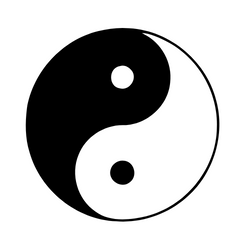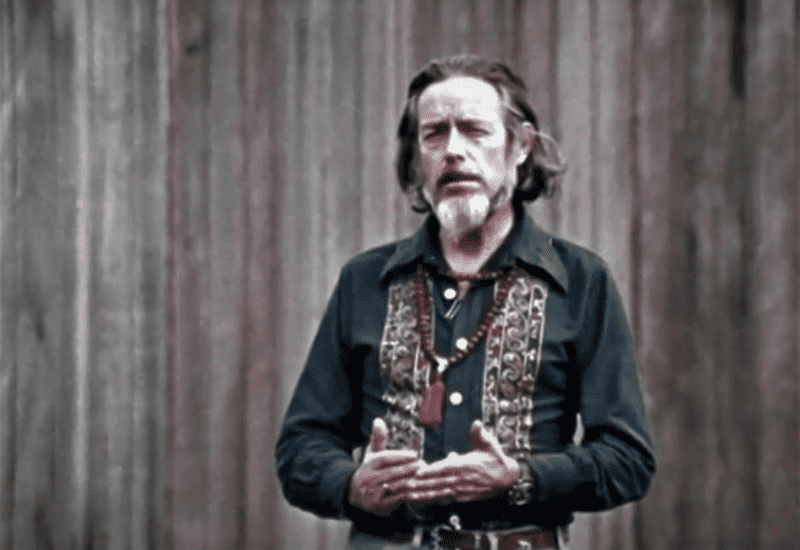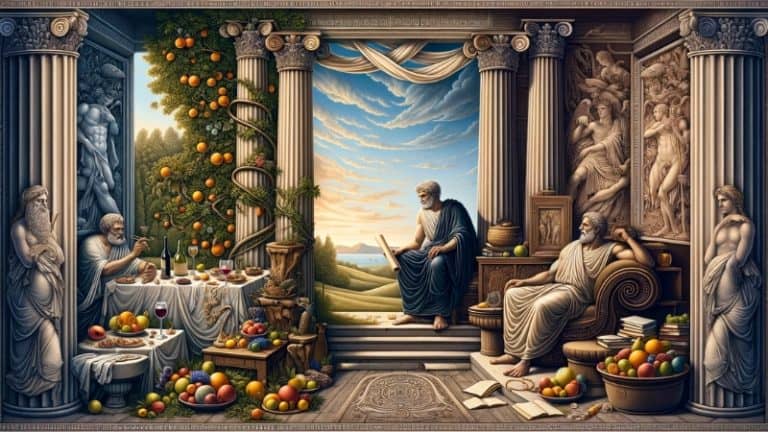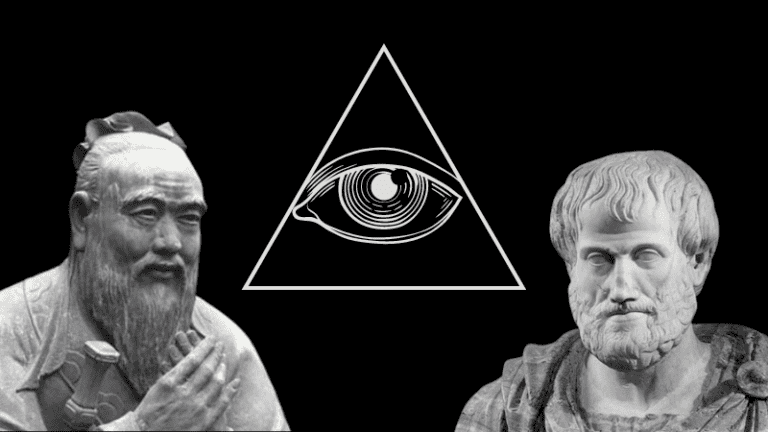Alan Watts on money, life and spiritual awakening
Alan Watts was known not only for making Far Eastern worldviews accessible to the Western world, but also for criticizing various circumstances of our modern society. This short but powerful excerpt from one of his speeches does both.
Alan Watts explains the dependence in which opposites stand, since they cannot exist without each other. In comparison, however, there are symbols and words, which are also in a relationship with each other, but it is wrong to assign less value to the actual thing - which we humans often do.
Here is the video, on this topic. I recommend you watch it before we get into exactly what he meant by it (if you don't understand English just skip the video):
Meaningful translation
Now let's have a look at the monologue. I have taken the liberty of adding some comments to it in order to explain deeper meanings and also references a little more closely:
"What has happened here is that we are aware that we are able to represent the basic processes. In a system of symbols, such as words, such as numbers, you bring two lives together at once, so to speak. One represents the other. The symbols represent reality, the money represents wealth, and if you don't realize that the symbol is secondary in reality, it doesn't have the same value....
Alan Watt describes here interactions of abstract concepts and the facts they stand for. However, he also urges caution, since man has the tendency to assign more value to the symbol of a thing than to the actual thing, as illustrated by the following example:
People go to the grocery store and get a whole cartload of merchandise that they go through, and then the clerk closes the register and this long tape comes up. And he says, "Thirty dollars, please."
"And everybody's bummed because they're giving away thirty dollars worth of paper. But they have a whole cart full of goodies. They don't think about that. They think they just lost thirty dollars.
But you have the real wealth in the car. You have only parted with the paper. Because the paper becomes more valuable than the wealth in our system. It represents a power potential, whereas the wealth... you think, "Oh, that's just necessary. You have to eat."
Well, I think that's really confusing."
Watts points out here that our society has come to value the abstract concept that money represents more highly than the things that money is supposed to serve. After all, money is simply a medium to exchange goods and services, without an interest in the offered good of the other is necessary. But the central object is theoretically always the good in and for itself.
"So then. When you wake up from this illusion and understand that black equals white, self equals other, life equals death or shall I say death equals life, then you can feel yourself. Not as a stranger in the world. Not as something that is here on probation. Not as something that has come here by chance, but you can begin to feel your own existence as absolutely fundamental. What you are basically deep, deep down inside is simply the stuff and structure of existence itself."
Watts points out that things can only exist in contrast to their opposite. Without it, the context that makes a thing exist at all is missing.
Luke has written a more detailed article on this topic, where you can learn more about the dependence of certain things - for example, the Highs and lows of life.
"Because if you play life assuming that you're a helpless little puppet that's gotten into this, or if you play it assuming that it's a terribly serious danger and that we really ought to do something about it and so forth, then that's torture.
There is no point in continuing to live if we do not assume that the situation of life is optimal. That we are really and truly in a state of total bliss and joy."
In many of his works, Watts shows that we interpret certain circumstances only through assumptions and our own perspective, and that this is practically not an objective view of reality in any case.
Another well-known example from Watts in this regard is that wood is hard only in relation to us. Compared to steel or stone, it is soft. And steel and stone are again hard compared to wood, but not compared to diamond.
"But we're going to pretend we're not. Just for the fun of it. You play non-bliss to experience bliss, and you can go as far into non-bliss as you want. And when you wake up, it will be great. You can hit yourself on the head with a hammer, because it's a nice way to stop.
And it makes you realize how great things are when you forget that it's like that. And it's just like black and white. You don't know black if you don't know white, and you don't know white if you don't know black. It's just fundamental."
Perhaps this passage brings to mind the yin-yang symbol, which in Far Eastern philosophy represents two complementary forces that make up all life.

Watts makes it clear once again at this point that one cannot go along without the other, since each needs the contrast to the other.
„So here comes the drama:
My metaphysics - to put it bluntly - is that there is the central self.
You can call it God, you can call it whatever you want. And it's each of us, it plays all the roles of all beings, no matter where and how, and it plays the game of hide and seek with itself, it gets lost, it gets tangled up and has adventures in the forest, but in the end it always wakes up and comes back to itself. And if you're ready to wake up, you'll wake up, and if you're not ready, you'll keep pretending you're just a poor little me."
Here Watts gives his view of how things are, "things" here standing for the origin and meaning of all being.
"My metaphysics is that there is a central self [...] and that is all of us [...]."
- Alan Watts
Such more concrete statements about Watt's outlook are rather rare to find. He usually simply stated what various philosophical concepts (Daoism, Buddhism, Hinduism, etc.) said, without going into what he believed.
And since you're all here and you're engaged in this kind of investigation and listening to this kind of talk, I assume you're all in the process of waking up. Or you are having fun flirting with waking up, but you are not serious.
But I suppose maybe you're not serious, but sincere, that you're ready to wake up.
I would like to leave this article without any major concluding comment. Just the conclusion made me think: for which of the two reasons do I listen to speeches like this one?
Maybe that got you thinking too. If so: have fun with it 🙂
If you liked this article you will find more. For example:
- Alan Watts' version of the Chinese farmer history
- Alan Watts about the meaninglessness of life and Wu Wei
- Alan Watts explains Problems of modern life
Did you like this article? You can let us inform you about new articles:







